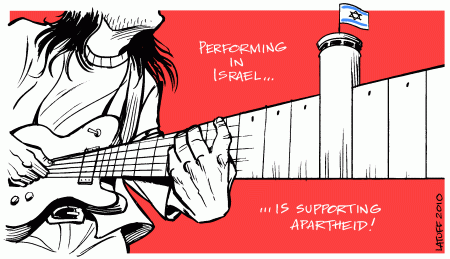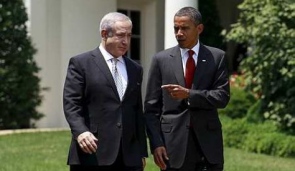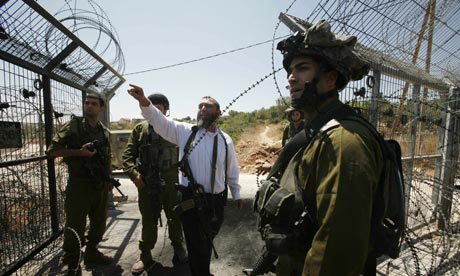EDITOR: The war on Iran seems closer
For an Israeli government which has run out of options and has managed to alienate its few friends left, and for an USA President with lower than ever polls, and a mountain to climb at the November elections for Congress, it seems mad to invest in another war, just as it becomes clear what disaster the war on Iraq, Afghanistan and Gaza really are. Yet, this is what seems to go forward, as the only new policy of the Obama administration. God save us from smart alecs like Barack…
How smart is this in comparison to the Dubya policies, you have to ask yourself?

Gaza aid flotilla to set sail from Lebanon with all-women crew: The Guardian
Arabic singer joins crew of nuns, doctors, lawyers and journalists for humanitarian mission despite Israeli warning
Israel’s deadly assault on a Gaza aid flotilla in June led to anger in the Muslim world and beyond. Photograph: Dita Alangkara/AP
A ship bearing aid for Gaza is preparing to leave Tripoli in Lebanon this weekend in the latest attempt to defy the Israeli blockade – with only women on board.
The Saint Mariam, or Virgin Mary, has a multi-faith international passenger list, including the Lebanese singer May Hariri and a group of nuns from the US. “They are nuns, doctors, lawyers, journalists, Christians and Muslims,” said Mona, one of the participants who, along with the other women, has adopted the ship’s name, Mariam.
The Mariam and its sister ship, Naji Alali, had hoped to set off several weeks ago but faced several delays after Israel launched a diplomatic mission to pressure Lebanon to stop the mission.
The co-ordinator of the voyage, Samar al-Haj, told the Guardian this week the Lebanese government had given permission for the boats to leave for Cyprus, the first leg of the journey, this weekend.
Israel says it is concerned a flotilla from Lebanon, with whom it has ongoing hostility, will smuggle weapons to Gaza. Israel’s ambassador to the UN, Gabriela Shalev, has warned that Israel reserves the right to use “necessary measures” in line with international law to stop the ship.
But al-Haj says the mission is purely humanitarian. “Our goal is to arrive in Gaza,” she said. “It is the responsibility of the government to deal with the politics. We are not political.”
She said that once news of the flotilla was out organisers were inundated with requests to join the voyage, with more than 400 from the US alone. At least 10 Americans will be on board.
The boat has been stocked with medical instruments and medicines to take to the Palestinians.
In preparation for the voyage the participants gathered at a hotel in Beirut to discuss their plans. The logistics are many: minimal grooming, strict food rationing, and limited water supply.
“There will be no showers, no skirts and no makeup,” al-Haj told the group.
The participants are aware of the dangers, having followed the fate of another flotilla carrying aid for Gaza that was attacked by Israel in May.
Israeli forces landed on the Mavi Marmara, a Turkish vessel, killing nine activists on board. Al-Haj reminded the women to be prepared for a confrontation.
“Have blood tests in case we come under attack from Israel and you need a blood transfusion,” she said. She added that organisers were going out of their way not to provoke Israel.
“We will not even bring cooking knives,” she said.
Serena Shim, who is heavily pregnant, decided to join the voyage because of her belief that the blockade is unjust. “These people need aid,” she said.
Asked how they would react to an Israeli military assault, one activist, Tania al Kayyalisaid: “We are not planning to fight or attack – but we will not leave the St Mariam.”
Academic Boycott on Israel Flexes Its Muscles: The Washington Report
WRMEA, August 2010, Pages 44-45, Southern California Chronicle
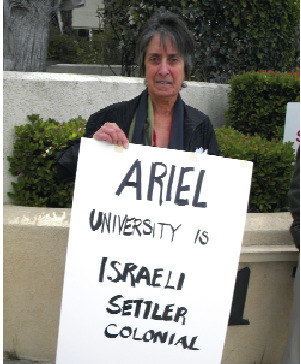
WERE IT not for the eagle eyes of Nur Marsalha, a professor of religion and politics in England, perusing the program for the biennial conference of the International Society for Iranian Studies (ISIS), Israel might have won a small victory in its efforts to legitimize its military occupation of the West Bank.
The May 27-30 conference at the Doubletree Inn in Santa Monica featured 66 panels, but Marsalha questioned the institutional affiliation of one particular participant: Ronen Cohen, who stated he was from Ariel University in Samaria, Israel.
Not only is Ariel University situated in Israel’s fourth largest illegal West Bank settlement, but it originally was a satellite campus of Bar Ilan University—until Israel’s Minister of Defense Ehud Barak rushed through its accreditation, without evaluating its academic qualifications.
As a result, a total of 120 academics registered their objections in a letter to ISIS arguing that the Ariel settlement is a violation of the Fourth Geneva Convention, which states that an occupying power cannot populate a territory it occupies.
ISIS claimed that it was being victimized by the U.S. Campaign for the Academic and Cultural Boycott of Israel. In response, ISIS member Vida Samiian, dean of the College of Arts and Humanities at Fresno State University, explained: “We tried to present a resolution allowing the general membership to vote on the matter. ISIS leadership blocked this.”
While ISIS did remove “Samaria” as the site of the Ariel institution, it blocked Internet access to Cohen’s paper, titled “The Hojjatiyeh: The Real Bringers of the Islamic Revolution of Iran.” Meanwhile, the chair and three other participants on the “Shi’ism, Clerics and Movements of Revolution and Reform” panel dropped out, leaving Cohen as the sole remaining member.
Finally, days before the conference, three new participants and a chair were announced—too late to review their abstracts for the session renamed “Dialogues and Contentions.”
Incredibly, one of the new panelists was Judea Pearl, a UCLA computer science professor and father of journalist Daniel Pearl, who was murdered by extremists in Pakistan. The title of his paper, “Carving a Dialogue between Muslims and Jews,” was a misleading one for Pearl, who vociferously rants about Islamist violence. He is the polar opposite of Cindy and Craig Corrie, who have responded to Israel’s killing of their daughter Rachel with a message of reconciliation.
On the second day of the conference, when Cohen was scheduled to speak, about 20 concerned academics and activists handed fliers to people arriving at the Doubletree Inn. Many stood behind a cardboard apartheid wall and held signs stating that ISIS approves of apartheid.
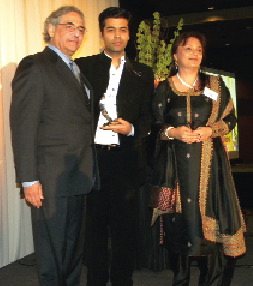
“We don’t object to an Israeli participating in the conference,” stated economics professor Sasan Faymazman during the informational May 28 picket. But “why did ISIS include a paper from a settler institution? Why did ISIS block the membership from reading Cohen’s abstract which deals with a so-called nuclear Iran and its ‘threat to the Middle East or maybe to the world?'”
The picketing was a success, as Iranian-American photographers and reporters left the conference to interview dissenting scholars. Dr. Ahmad Karimi, a past ISIS president, confronted the picketers and voiced his objections to their accusations that ISIS supported apartheid. Agreeing that military occupation is wrong, he stated that the controversy will be reviewed at the Middle East Studies Association convention in November.
The incident gives notice to Israel that no trick to gain cultural or academic legitimacy is too small for Boycott, Divest and Sanction (BDS) activists to uncover and expose. For more information, visit <www.usacbi.org>.
MPAC Media Awards
What do best-selling author Dave Eggers, the Emmy-award winning TV series “Grey’s Anatomy,” and feature films “Amreeka” and “My Name Is Khan” have in common? All are recipients of the Muslim Public Affairs Council’s (MPAC) 2010 media awards, presented May 1 at the Westin Bonaventure in Downtown Los Angeles. More than 600 members and guests gathered for the 19th annual event honoring film, TV and literary projects that cast Muslims in realistic roles.
Eggers has been the hero of the Arab-American and Muslim-American communities since July 2009, when he published his best selling book, Zeitoun (available from the AET Book Club), which chronicles the harrowing post-Hurricane Katrina ordeals of Abdulrahman Zeitoun. Accepting the award, Eggers recalled how, when he began to interview them, Abdulrahman and his wife, Kathy, protested “Who will care about our story?” Instead they became the first Muslim family many American readers came to know.
MPAC selected an episode from “Grey’s Anatomy” for its media awards because it focused on the deep faith of a Muslim lab technician (Faran Tahir) who insists on surgery for an inoperable tumor. In the November 2009 episode, entitled “Give Peace a Chance,” the Muslim patient makes du’a, and his faith enlightens the surgeon (Patrick Dempsey).
Accepting the award were Pakistani-American actor Tahir, executive producer Mark Wilding and writer Peter Nowak.
Bollywood director Karan Johar traveled from India to receive his MPAC award for his film, “My Name Is Khan.”Inspired by political events in the U.S., the feature film tells the story of Rizvan Khan, a Muslim afflicted with Asperger’s syndrome who travels to the post-9/11 U.S.
In the U.S., Khan falls in love with and marries a Hindu divorcee, helps a small town in Georgia cope with a Hurricane Katrina-like flood, and launches a mission to tell newly elected President Barack Obama that his name is Khan and he’s not a terrorist.
Cherien Dabis’ film “Amreeka” explores how someone from the West Bank starts life over in the Midwest. The screenwriter and director was applauded by MPAC for her tragicomedic view of a Palestinian divorcee’s rough awakening to life in post-9/11 America.
Dabis used her own experience of coming of age in the Midwest during the first Gulf war to tell the story of her fictional heroine, Munah, and her teenage son, Fadi. Dabis’ Palestinian parents emigrated to Ohio shortly before her birth. Her father was a highly respected physician until the first Gulf war began. Soon, the Arab-American family was treated like a pariah.
SAWA Fetes Syrian Stars
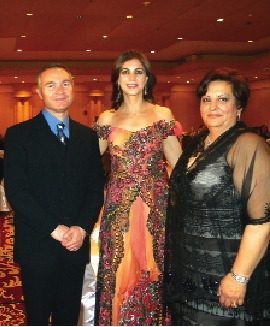
The Syrian American Women’s Association (SAWA) has been providing medical assistance to hearing-impaired children in Syria for a decade. On May 1, it celebrated its 10th anniversary with a gala dinner in the Millennium Biltmore Hotel in Downtown Los Angeles.
Dr. Kamal Batniji, who has helped SAWA perform cochlear implants to deaf children in Syria, received the group’s Golden Heart award. Also receiving the award for their assistance were Dr. Hatem and Salwa Chehabi, Dr. Abdallah and Daad Farrukh, and Jim and Pricilla Khoury.
A highlight of the charitable organization’s annual event is the presentation of al-Ataa awards to Syrian stage and screen stars. This year’s recipients were actress Sulaf Fawakheri and producer/director/actor Jamal Soliman. Presenting the awards were Farouk Ubaysi and SAWA president Ilham Kalioundji.
Over the past year, SAWA provided eight cochlear implants to deaf children and donated 250 hearing aids. It also spearheaded the development and implementation of a speech rehabilitation curriculum at Damascus University.
Pat and Samir Twair are free-lance journalists based in Los Angeles.
MSU Appeals UCI Suspension Recommendation
The showdown for the Zionist Organization of America (ZOA), Orange County Jewish Federation and Israel’s Consul General in Los Angeles Jacob Dayan versus the Muslim Students Union (MSU) of the University of California at Irvine (UCI) took place June 14 when the Jewish Federation went public with a confidential UCI recommendation to suspend the MSU for one year.
At UCI, where Muslim and Arab students are equal in number to Jewish undergrads, creative MSU programs have outraged off-campus Zionist leaders. In 2007, the U.S. Department of Education Office on Civil Rights determined ZOA complaints of UCI campus anti-Semitism were unfounded.
The conflict came to a head Feb. 8, when Israeli Ambassador Michael Oren spoke at UCI and his speech was interrupted 10 times by 11 students—two of whom had lost relatives killed during Israel’s 22-day blitzkrieg of Gaza (see May/June 2010 Washington Report, p. 36).
A delegation from the Orange County Jewish Federation traveled to Oakland, CA to present their allegations to UC Chancellor Mark G. Yudorf.
With the June 14 release of the recommendation of the suspension of MSU for one year effective in September, and an additional one year of probation, attorney Reem Salahi filed an appeal on behalf of the MSU. “Even the fraternity at UC San Diego which hosted the racist ‘Compton Cookout’ wasn’t suspended,” she noted. “It appears UCI is applying a different standard of punishment against the MSU than any other campus organization.”
Emphasizing that MSU is primarily a religious organization that provides prayer services on campus, Salahi said as many as 250 Muslim students would be affected by the suspension, leaving them without a voice or means of association.
“UCI is clearly caving into the pressure of these external organizations who seek to silence dissent and criticism of the Israeli state,” Salahi concluded. “Collectively punishing the entire Muslim population is truly chilling.”
Stated UCLA anthropology professor Sondra Hale: “This ruling will be a major setback to activist students everywhere and a blow to academic freedom, not to mention underscoring the degree to which officials of the UC system cater to outside proponents of Israel’s government policy.”—Pat McDonnell Twair
Jonathan Cook: Negev village torn down for second time: IOA
By Jonathan Cook in al-Araqib – 6 Aug 2010
Israel plans mass forced removals of Bedouin
Israeli security forces destroyed a Bedouin village this week for the second time in a matter of days, leaving 300 inhabitants homeless again after they and dozens of Jewish and Arab volunteers had begun rebuilding the 45 homes.
Human rights groups warned that these appeared to be the opening shots in a long-threatened campaign by the Israeli government to begin mass forced removals of tens of thousands of Bedouin from their ancestral lands in the northern Negev.
The High Follow-Up Committee, the main political body for Israel’s Arab minority, vowed this week to help rebuild the village for a second time and said it would call on the UN to investigate Israel’s treatment of the Bedouin.
Al Araqib village, which is a few kilometres north of the Negev’s main city Beersheva, has become a symbol of the struggle by about 90,000 Bedouin to win recognition for dozens of communities the government claims are built on state land.
In a test case before the Israeli courts, an inhabitant of al Araqib has been presenting documents and expert testimony to show his ancestors owned and lived on the village’s lands many decades before Israel’s establishment in 1948. The judge is expected to rule within months.
“Tearing down an entire village and leaving its inhabitants homeless without exhausting all other options for settling longstanding land claims is outrageous,” said Joe Stork, the deputy Middle East director of Human Rights Watch.
A force of 1,500 police, including a special riot squad wearing black balaclavas, entered the village early on Wednesday to pull down a dozen wooden shacks and a half-built concrete home. The local Aturi tribe had been in the process of rebuilding the village after it was razed by bulldozers a week earlier.
The Israeli forces also uprooted 850 olive trees, said Ortal Tzabar, a spokeswoman for the government’s Land Administration.
Yesterday Adalah, a legal group for Israel’s 1.3 million Arab citizens, demanded a criminal investigation into what it called “police brutality” during both demolition operations.
Sawsan Zaher, a lawyer, said assaults on villagers, confiscation of their property and the security forces’ decision to cover their faces and not wear identity tags were all designed to “instil fear” in the residents.
Taleb a-Sanaa, a Bedouin member of the Israeli parliament who was left unconscious on Wednesday after police dragged him from a tent in which he was staging a protest, warned that the government was risking “an uprising in the Negev”.
Six village leaders were arrested shortly afterwards when they refused to sign a paper committing not to return to al Araqib.
Awad Abu Freih, a village spokesman, said they remained defiant. “The authorities want to break our connection to this land so it can be turned over to Jews. They can keep destroying, but we will continue rebuilding. We will not leave.”
The first demolition of the village, late last month, came shortly after Prime Minister Benjamin Netanyahu warned his cabinet that the growth of the country’s Arab minority, already a fifth of the population, posed a “palpable threat” to the state’s Jewishness.
“The effect could be that different elements will demand national rights within Israel – for example, in the Negev – if we allow for a region without a Jewish majority.”
Last month the government announced a $50 million assistance programme to encourage army personnel to relocate to Jewish communities in the Negev.
The Bedouin’s increasing assertiveness about their indigenous status, which is backed by international groups, has led to a backlash from officials, who regularly refer to the Bedouin as “squatters” and “invaders” of state land.
Nili Baruch of Bimkom, an Israeli planning rights group, said a master plan currently being approved for the metropolitan area of Beersheva required “more house demolitions and more forced removals of the Bedouin population”, such as occurred at al-Araqib.
In addition, she said, the authorities had approved a special operation known as “Hot Wind” to carry out the demolitions.
The government’s conflict with the Bedouin dates back to Israel’s founding, when most of the Negev’s population were driven out of the new state.
With the highest birth rate in Israel, the surviving tribes have grown rapidly and now number 180,000, more than a quarter of the Negev’s population despite waves of state-sponsored Jewish migration.
Israel has refused to recognise most of the Bedouin’s traditional communities and insists they move into seven deprived townships built by the government several decades ago. Only about half have done so, with the rest insisting on their right to continue with their pastoral way of life.
Al-Araqib has become a particular point of friction because most of the Aturi moved into a nearby township, Rahat, in the 1970s, after their lands had been declared a closed military zone.
But faced with severe overcrowding in Rahat and no new land for expansion, many young families began moving back to al-Araqib a decade ago.
Like 45 other unrecognised villages, al Araqib is denied all services, including water and electricity, and its buildings are illegal.
A recent government commission found that tens of thousands of Bedouin buildings are subject to demolition orders, though until now individual buildings have been targeted, not whole communities.
Last month the Beersheva planning committee approved a scheme to recognise 13 Bedouin villages and force the other inhabitants into the townships.
In that plan, al Araqib’s lands are designated for a “peace forest” – funded by an international Zionist organisation, the Jewish National Fund – a move Mr Abu Freih said was designed to prevent the villagers’ return.
Ms Baruch said the authorities were demanding the inhabitants move to Rahat, even though no homes were provided for them.
Mr Abu Freih said other parts of the tribe’s lands nearby had been secretly settled by Jews in 2004. In a night-time operation JNF and government officials set up caravans that subsequently became an exclusively Jewish known as Givat Bar.
From 2002, Israel began a policy of annually spraying herbicide on al-Araqib’s crops, in an attempt to move them off the land, until the supreme court deemed the practice illegal in 2007.
Jonathan Cook is a writer and journalist based in Nazareth, Israel. His latest books are “Israel and the Clash of Civilisations: Iraq, Iran and the Plan to Remake the Middle East” (Pluto Press) and “Disappearing Palestine: Israel’s Experiments in Human Despair” (Zed Books). His website is www.jkcook.net.
A version of this article originally appeared in The National, published in Abu Dhabi.
